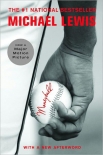Moneyball by Lewis, Michael (books to read in your 30s TXT) 📗

Book online «Moneyball by Lewis, Michael (books to read in your 30s TXT) 📗». Author Lewis, Michael
Oddly enough, Major League Baseball had asked that very question, in its own half-assed, incurious way. After the 1999 season, the Major League Baseball Players Association had created something it called the Commissioner’s Blue Ribbon Panel on Baseball Economics, whose job it was to produce a document called The Blue Ribbon Panel Report. Its stated purpose was to examine “the question of whether baseball’s current economic system has created a problem of competitive imbalance in the game.” The baseball commissioner, Bud Selig, had invited four men of sound reputation—former U.S. senator George Mitchell, Yale president Richard Levin, the columnist George Will, and former chairman of the U.S. Federal Reserve Paul Volcker—to write a report on the economic inequalities in baseball. Selig owned maybe the most pathetic poor team in all of baseball, the Milwaukee Brewers. He no doubt wanted to believe that the Brewers’ trouble was poverty, not stupidity. He had an obvious financial interest in the commission reaching the conclusion that players’ salaries needed to be constrained and that rich teams should subsidize poor ones. He expressed this interest by trying to pad the Blue Ribbon Panel Commission with other owners of poor, pathetic baseball teams. But the four eminences objected to this transparent attempt to undermine their authority, and Selig agreed that the owners would merely sit in the room, observing the eminences deliberate.
It didn’t matter. In July 2000, the panel did pretty much exactly what Bud Selig hoped it would do: conclude that poor teams didn’t stand a chance, that their hopelessness was Bad for Baseball, and that a way must be found to minimize the distinction between rich and poor teams. George Will, the conservative columnist, was, oddly enough, the most outspoken proponent of baseball socialism. One dramatic fact Will often used to incite alarm was that the ratio of the payrolls of the seven richest and seven poorest teams in baseball was 4:1, while in pro basketball it was 1.75:1 and in pro football 1.5:1. Baseball was the major American sport in which money bought success, he said, and that was a crime against the game. When fans of the Brewers and the Royals and the Devil Rays figured out that their teams existed only so that the New York Yankees might routinely pummel them, they would abandon the sport altogether. At stake was nothing less than the future of professional baseball.
There was something to be said for these arguments but there was also something to be said against them, and, according to two people who watched the proceedings, only one commissioner was willing to say it: Paul Volcker. Volcker was also the only commissioner with a financial background. To the growing annoyance of the others, he kept asking two provocative questions:
If poor teams were in such dire financial condition, why did rich guys keep paying higher prices to buy them?
If poor teams had no hope, how did the Oakland A’s, with the second lowest payroll in all of baseball, win so many games?
The owners didn’t have a good answer to the first question, but to answer the second they dragged in Billy Beane to explain himself. The odd thing was that the previous season, 1999, the A’s had finished 87-75 and missed the play-offs. Still, they had improved dramatically from 1998, Billy’s first year on the job, when they’d gone 74-88. And they were looking even stronger in 2000. Volcker smelled a rat. If results in pro baseball were so clearly determined by financial resources, how could there be even a single exception? How could a poor team improve so dramatically? Paul DePodesta wrote Billy Beane’s presentation and Billy flew off to New York to explain to Volcker why he was a fluke. He was happy to do it. He hadn’t the slightest interest in stopping the Blue Ribbon Panel from concluding that his life was unfair. He’d be delighted to see the cost of players constrained, or, even better, the Yankees made to give him some of their money. When he got up before the panel, Billy flashed a slide up on the overhead projector. It read:
“MAJOR LEAGUE”*Movie about the hapless Cleveland Indians
In order to assemble a losing team, the owner distributes a list of players to be invited to spring training. The baseball executives say that most of these players are way past their prime. Fans see the list in the paper and remark, “I’ve never even heard of half these guys.”
Our situation closely resembles the movie.
When it suited his purposes Billy could throw the best pity party this side of the Last Supper. He told the Blue Ribbon Panel that the Oakland A’s inability to afford famous stars meant that no matter how well





Comments (0)